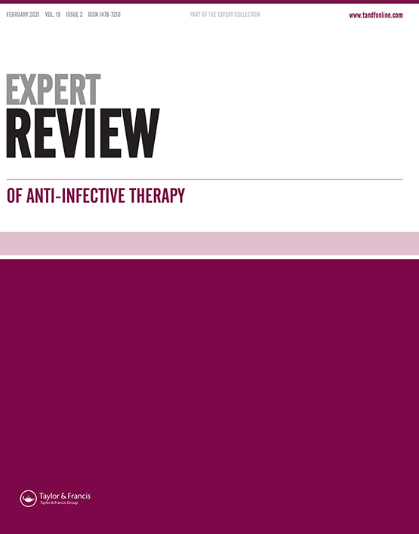临床实践中的真菌感染诊断:综述。
IF 4.2
2区 医学
Q1 INFECTIOUS DISEASES
引用次数: 0
摘要
背景侵袭性真菌感染(IFI)是一项重大的医学挑战,估计每年有 650 万病例,导致 380 万人死亡。曲霉菌属、念珠菌属、粘菌属、隐球菌属等病原体和其他真菌物种是造成这些感染的原因,对免疫力低下的人构成风险。本综述概述了当前诊断真菌性疾病(包括侵袭性曲霉菌病、侵袭性念珠菌病以及罕见和地方性真菌感染)的方法和挑战。文章回顾了各种诊断技术,包括显微镜检查、培养、分子诊断和血清学检测,强调了它们各自的优势和局限性以及在临床指南中的作用。专家观点当前真菌感染诊断技术的进步对医疗成果具有重大影响。分子检测和抗原检测等改进策略有望及早发现真菌病原体,从而加强对患者的管理。面临的挑战包括全球范围内先进技术的普及,以及需要标准化、用户友好的护理点诊断方法来改善全球真菌感染的诊断。本文章由计算机程序翻译,如有差异,请以英文原文为准。
Diagnosing fungal infections in clinical practice: a narrative review.
BACKGROUND
Invasive fungal infections (IFI) present a major medical challenge, with an estimated 6.5 million cases annually, resulting in 3.8 million deaths. Pathogens such as Aspergillus spp. Candida spp. Mucorales spp. Cryptococcus spp. and other fungi species contribute to these infections, posing risks to immunocompromised individuals. Early and accurate diagnosis is crucial for effective treatment and better patient outcomes.
AREAS COVERED
This narrative review provides an overview of the current methods and challenges associated with diagnosing fungal diseases including invasive aspergillosis, invasive candidiasis as well as rare and endemic fungal infections. Various diagnostic techniques, including microscopy, culture, molecular diagnostics, and serological tests, are reviewed, highlighting their respective advantages and limitations and role in clinical guidelines. To illustrate, the need for improved diagnostic strategies to overcome existing challenges, such as the low sensitivity and specificity of current tests and the time-consuming nature of traditional culture-based methods, is addressed.
EXPERT OPINION
Current advancements in fungal infection diagnostics have significant implications for healthcare outcomes. Improved strategies like molecular testing and antigen detection promise early detection of fungal pathogens, enhancing patient management. Challenges include global access to advanced technologies and the need for standardized, user-friendly point-of-care diagnostics to improve diagnosis of fungal infections globally.
求助全文
通过发布文献求助,成功后即可免费获取论文全文。
去求助
来源期刊
CiteScore
11.20
自引率
0.00%
发文量
66
审稿时长
4-8 weeks
期刊介绍:
Expert Review of Anti-Infective Therapy (ISSN 1478-7210) provides expert reviews on therapeutics and diagnostics in the treatment of infectious disease. Coverage includes antibiotics, drug resistance, drug therapy, infectious disease medicine, antibacterial, antimicrobial, antifungal and antiviral approaches, and diagnostic tests.

 求助内容:
求助内容: 应助结果提醒方式:
应助结果提醒方式:


